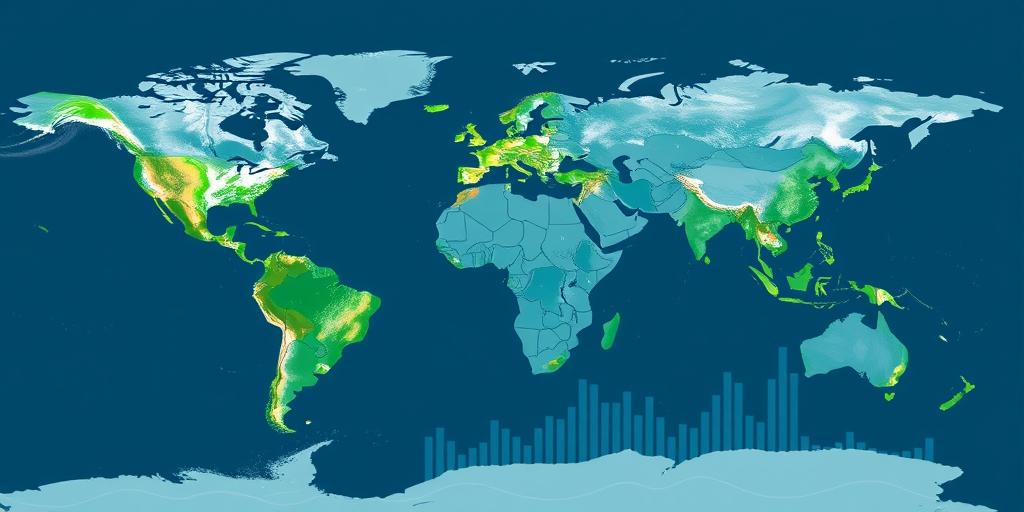Climate change is no longer a distant threat; its impacts are already reshaping the global economy. From rising sea levels and extreme weather events to resource scarcity and disrupted supply chains, the economic consequences are far-reaching and demand immediate attention.
The Direct Costs of Extreme Weather
Extreme weather events, such as hurricanes, floods, and droughts, inflict billions of dollars in damages annually. These events destroy infrastructure, disrupt agricultural production, and displace communities. For example:
- Coastal regions: Rising sea levels threaten coastal cities and infrastructure, leading to increased costs for protection and relocation.
- Agricultural sectors: Droughts and floods reduce crop yields, leading to food shortages and price increases.
- Insurance industry: Insurers face mounting losses from climate-related disasters, leading to higher premiums and reduced coverage.
Resource Scarcity and Economic Instability
Climate change exacerbates resource scarcity, particularly water and arable land. This scarcity can lead to increased competition for resources, which can fuel conflicts and economic instability:
- Water scarcity: Reduced rainfall and increased evaporation lead to water shortages, impacting agriculture, industry, and human consumption.
- Land degradation: Desertification and soil erosion reduce the amount of arable land, affecting food production and livelihoods.
- Migration: Climate-induced displacement can strain resources in receiving areas and create social and economic challenges.
Disrupted Supply Chains and Trade
Climate change disrupts supply chains and trade routes, impacting businesses and consumers worldwide:
- Transportation: Extreme weather events can disrupt transportation networks, leading to delays and increased costs.
- Manufacturing: Climate-related disruptions to raw material supplies can impact manufacturing output.
- Tourism: Climate change can damage tourist destinations, reducing tourism revenue.
The Need for Climate Action
Addressing the economic impacts of climate change requires a multifaceted approach:
- Mitigation: Reducing greenhouse gas emissions through transitioning to renewable energy sources, improving energy efficiency, and adopting sustainable land management practices.
- Adaptation: Investing in infrastructure that can withstand climate change impacts, developing drought-resistant crops, and implementing early warning systems for extreme weather events.
- Resilience: Building economic and social systems that are more resilient to climate change impacts, such as diversifying economies and promoting social safety nets.
Climate change poses significant risks to the world economy. However, by taking decisive action to mitigate and adapt to climate change, we can build a more sustainable and prosperous future for all.









